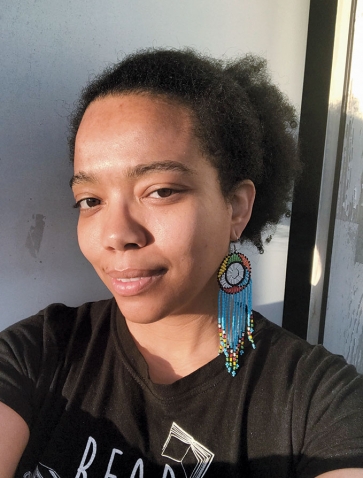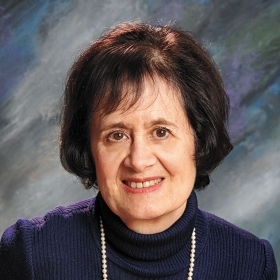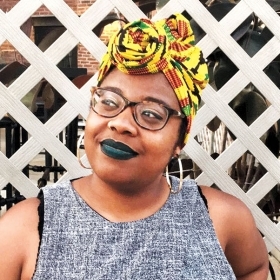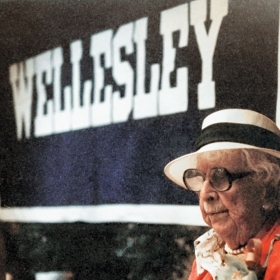A mid-April blizzard was on its way, and Valeria Wicker ’02 was scared for her community. Hundreds of houses were without power at the Rosebud Indian Reservation in Mission, S.D. Some were newly power-less after a heat assistance program ended on March 31, and others had been living that way for months.
After borrowing $172 to get her own power back on, Valeria, who teaches 6th grade in Mission, turned to the Wellesley community with a plea: Please help bring the light. Bring the heat.
Thousands of dollars were owed on past-due accounts. To get their power back on, residents needed to pay off amounts ranging from $100 to more than $1,300. The average annual per capita income in Todd County, where her school is located, is just $11,800.
Valeria started posting stories of those who needed help: A mom of seven kids, including one with asthma. Two girls who arrived at school crying because they had no light. She figured Wellesley’s Sed Ministrare group—a Facebook forum created for alumnae to give and receive help—could raise money for the one or two households with the most extreme need. But the community didn’t stop there.
The organizing began, and the money started to come in. $107. $303. Several alumnae pooled money, then called the power companies directly to make payments on individual accounts. $443. $1,317.
Over just a few days, more than 150 alumnae contributed at total of more than $30,000 to restore the heat and light to more than 50 houses on the Rosebud Reservation.
The power companies were overwhelmed, as was the community.
“I’m just really amazed by all that’s happened, very grateful to my fellow Wellesley siblings for all their help,” Valeria says. “This is a very invisible part of America—Native Americans, reservations, rural areas.”
The community, which received more than a foot of snow at the end of the week, expressed profound gratitude for the Wellesley community. “Because of your compassion … many will sleep tonight without worry,” the reservation’s White Horse Ministry wrote in a Facebook post. The post goes on to ask that God repay the donors “100Xs what they have given.”
One family waited two hours for Valeria to return from a field trip so they could thank her. They asked to pray together, and Valeria explained the community that rallied to bring the heat. It’s a blessing, the family said, and no coincidence that your motto is not to be served but to serve.
Valeria and several members of the Sed Ministrare group continue to work with the Episcopal mission to explore creating renewable energy, youth, and financial literacy programs. For information, visit https://goo.gl/PzhR29.








We ask that those who engage in Wellesley magazine's online community act with honesty, integrity, and respect. (Remember the honor code, alums?) We reserve the right to remove comments by impersonators or comments that are not civil and relevant to the subject at hand. By posting here, you are permitting Wellesley magazine to edit and republish your comment in all media. Please remember that all posts are public.